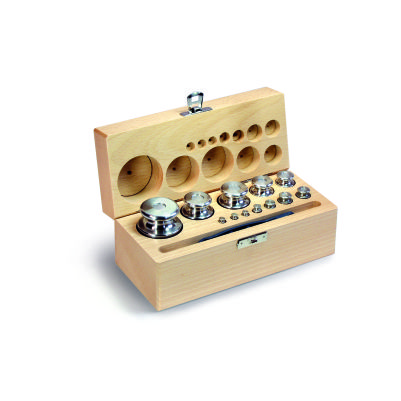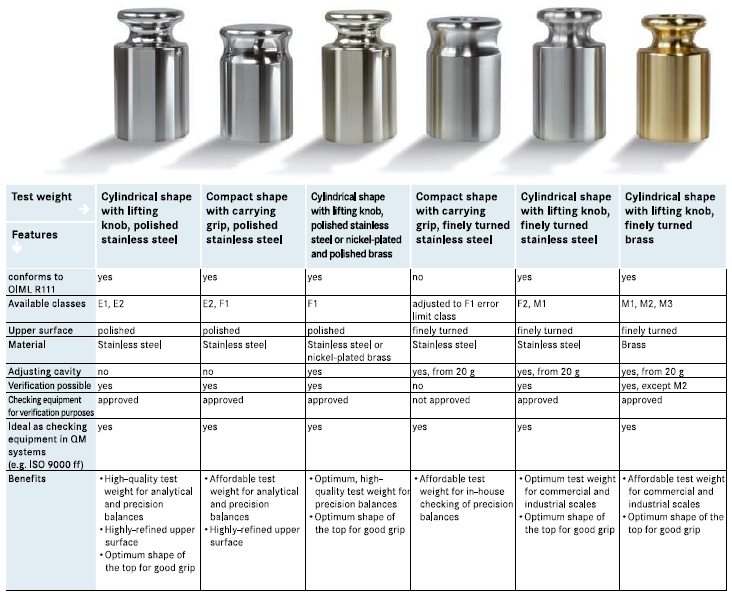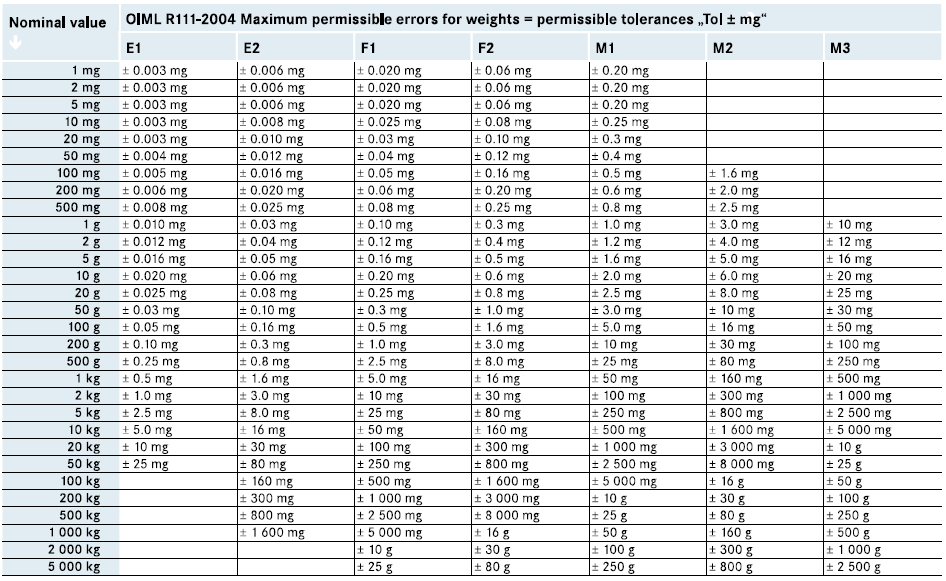Calibration Weight Test – KERN

Information about your KERN test weight
Correctly selected test weights with DKD calibration certificate are the pre-requisite for ensuring that your balances are not only correctly adjusted, but also correctly calibrated. Scheduled testing of your balances with such test weights helps to guarantee your quality requirements and to maintain your quality targets.
Selection of the appropriate test weight for your balance
- Here’s how you find the right test weight for your balance: A balance can never bw more accurate than the test weight used to adjust it, it depends on its tolerance.
- Accuracy of the test weight: Should correspond to the readout d of the balance, rather than something better.
- Nominal weight value: This is shown in adjust mode ,,CAL’’ in the balance display. Given the choice, the heaviest weight is the most suiable for accurate measurement.
- Example: Balance with weighing range Max 2000 g = 2 kg and readout d = 0,01 mg
- Exception, analytical balances (readout d < 0,1 mg): E1 test weights are recommended. Depending on the safety requirements, E2 test weights with a DKD calibration certificate will also be sufficient.
From brass to stainless steel - the right test weight for every situation

OIML Directive R111-2004 for weights
The key points from the OIML Directive R111-2004
OIML (Organisation International de Metrologie Legale) has established the exact metrological requirements for weights in verified applications in approx. 100 states all over the world. The OIML recommendation R111 (2004 Edition) for weights relates to sizes 1 mg-50 kg. Statements are made on the accuracy, materials, geometric shape, marking and storage of the weights.
Error limits for weights of classes E1 to M3
The error limit classes are in fixed hierarchical levels in the proportion of 1:3, where E1 is the most accurate and M3 is the least accurate weight class. When testing weights with other weights, the correct test class is the next highest class.
Error limit classes (= tolerances)
The values given in the table below (tolerances + … mg) are the respective permitted fabrication tolerances. They are to be equal to the → measuring uncertainty of the weight, if no → DKD calibration certificate is available.
KERN cylindrical test weights
Comply with OIML R111-2004 in all respects, without exception.

Denomination table, valid for all KERN weight sets from 1 mg
